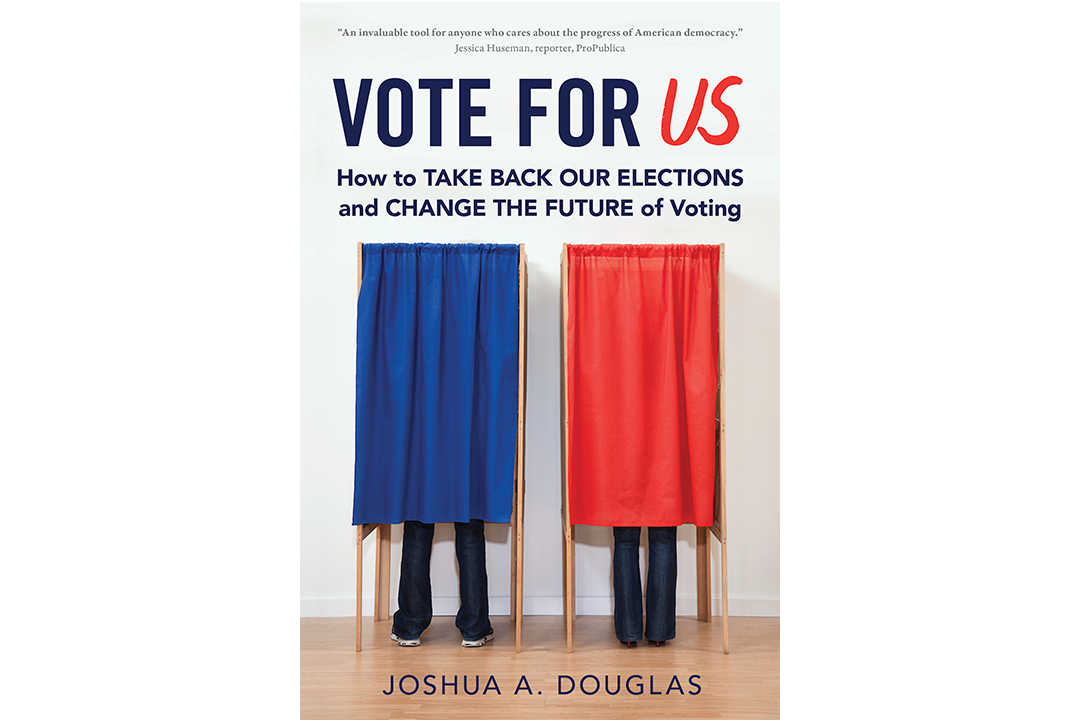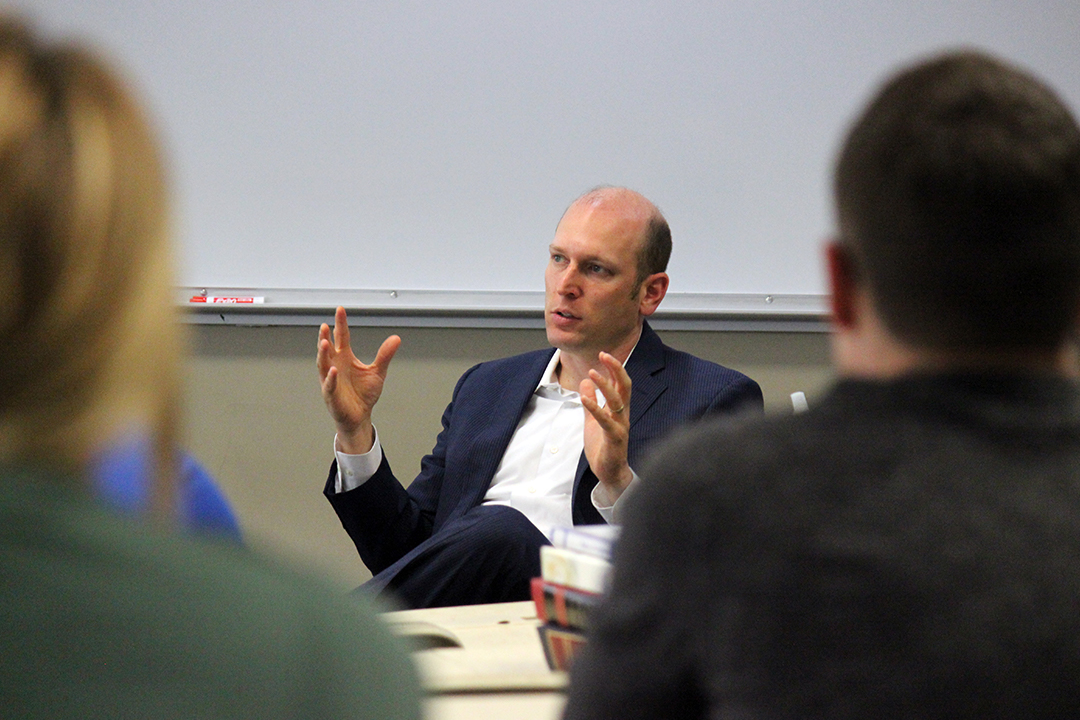During election season, Joshua Douglas, BA ’02, JD ’07—a nationally renowned expert on election law—finds his inbox crowded with emails from friends, family, students and media outlets on topics ranging from voter ID requirements to the minimum voting age.
But this year is different. With an election looming in the midst of a global pandemic and partisan maelstroms, the emails are arriving faster than he can read them. And the questions are increasingly panicky. Is mail-in voting secure? Can a president postpone an election? Will my vote be counted?
“The emails have definitely ramped up. Sometimes I find myself trying to talk people off the ledge,” said Douglas, who is the Ashland-Spears, Inc. Distinguished Research Professor of Law at the University of Kentucky J. David Rosenberg College of Law and author of the book Vote for US: How to Take Back Our Elections and Change the Future of Voting. Douglas has provided expert commentary for CNN and contributed articles to media outlets like The New York Times, The Washington Post and dozens of scholarly journals including the George Washington Law Review.
Douglas offers a reassuring message for anxious voters. Yes, there are real threats to our electoral system, like voter suppression, and “we need to stay vigilant against those tactics,” he stressed. But not all the election news is bad. Douglas points to positive voting rights initiatives occurring in communities across America—such as expanding voter eligibility and easing registration rules. And while he expects this November’s contest to be contentious, he is hoping to ease voter fears and restore their electoral confidence.
“When doom-and-gloom becomes the prevalent storyline around elections, people throw up their hands and say, ‘Why bother voting?’” he explained. “When we leave out the good news, we leave out the part of the story that gives people hope—and gets them excited to be part of the political process.”
Cornerstone of Democracy
While a political science major at Columbian College, Douglas met his wife Bari Douglas, BBA '02, became an avid Washington Nationals fan and was drawn to election law in classes such as a judicial politics lecture taught by Paul Wahlbeck, who is now dean of the college. “Election law is the cornerstone of democracy,” Douglas said. “Every law we study literally starts with the right to vote.”
In both his scholarship and his writings, Douglas tries to disabuse preconceived assumptions about election laws. For his students, that might mean parsing the campaign finance consequences of the Supreme Court’s 2010 Citizens United decision or exploring the disenfranchising effect of voter ID laws.
For wider audiences, he often finds himself soothing anxieties over the electoral system. While he always acknowledges the inequalities surrounding the voting process—particularly efforts that hinder minorities’ access to the polls—Douglas stresses that the history of American elections, although bumpy in terms of unwarranted voter suppression, has followed a steady march toward greater inclusion.
“Elections today are, generally speaking, better than they were a hundred years ago when women couldn't vote,” he said. “They're better than when you had to pay property taxes to vote. And they're better, certainly, than they were before the 1960s and the civil rights revolution. That doesn’t make them perfect today. But we should acknowledge that progress and expand upon it.”
In his book, Douglas highlights the way local communities are taking the lead in election reforms. He writes about Takoma Park, MD, volunteers who worked to lower the voting age to 16 for local elections; Oregon lawmakers who championed automatic voter registration when renewing driver licenses; and Floridians who changed their state constitution to restore voting rights for people convicted of non-violent felonies.

“Supreme Court Justice Louis Brandeis said that states are the laboratories of democracy. I like to say that cities and counties are the test tubes of democracy,” Douglas said. “They try something on a small scale, and then it spreads throughout the country.”
Still, Douglas understands that this election presents unique challenges. He has done his best to clarify confusion by consulting with state election officials, addressing media outlets and easing his emailers’ concerns. Their most common question, Douglas said, is whether a president has the authority to postpone the election—a question for which he has an unequivocal answer: “No, no, no.” With the U.S. Constitution stating that only Congress can set the date of the election, “there is literally nothing that a president can do to delay it. Let me abundantly clear: The election will occur on November 3.”
Douglas is also often asked about voting by mail—another topic that he says shouldn’t worry people. Five states—Colorado, Hawaii, Oregon, Utah and Washington—already allow all elections to be conducted by mail, with most others moving to expanded vote-by-mail during the pandemic. An advisory board member for the nonprofit National Vote at Home Institute, Douglas emphasized that “the amount of mail-in ballots that the Post Office processes is a such small fraction of the total mail that the mechanics aren’t a problem.” Still he advises voters to request their mail-in ballots now—and return them early. And he notes that many states allow voters to track whether their ballots have been sent and received.
“Part of my role as a public educator is to assure everyone that there are dedicated people on the ground who are focused on making this election go fairly,” Douglas said. “I’m an optimist by nature. We held elections during the 1918 global pandemic, we held elections during world wars. We will pull off this election too—even if it’s by the skin of our teeth.”


